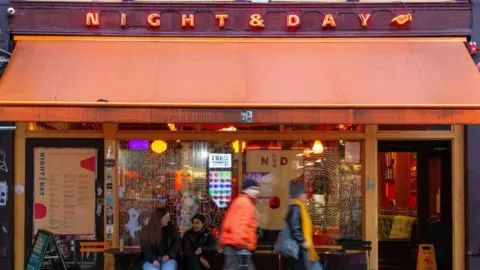The ongoing challenges faced by pubs and music venues in relation to noise complaints have spurred a significant governmental response aimed at protecting these vital establishments. New licensing rules are set to be introduced that will provide a measure of protection from noise complaints, particularly for pubs and music venues, enabling them to operate with greater security and less fear of closure due to complaints from nearby residents.
Under the proposed reforms, developers planning to build in proximity to these venues will be required to implement soundproofing measures in their new buildings. This pivotal change is aimed at facilitating the coexistence of residential and entertainment spaces, ensuring that noise complaints do not compromise the viability of these establishments. Moreover, the government plans to fast-track permits for new businesses and outdoor expansions in designated areas, which is expected to invigorate the hospitality sector that has suffered in recent years.
The government envisions that these changes will not only bolster traditional pubs but also open the door for innovative concepts like transforming disused shop spaces into lively bars. The initiative seeks to encourage outdoor drinking, al fresco dining, and more live performances, revitalizing town centers that have been struggling in the wake of economic difficulties intensified by the COVID-19 pandemic.
However, this move has not come without its critics. The Conservative party has voiced skepticism regarding the government’s approach, attributing the struggles of the hospitality industry to Labour’s tax policies. They argue that before any reform can be effective, the punitive measures imposed by Labour should first be addressed. This sentiment underscores a broader political debate regarding the sustainability and health of the hospitality sector.
The urgency of these reforms is underscored by recent instances where beloved local pubs and music venues have faced imminent closure due to persistent noise complaints. Notably, the Moth Club, an independent venue in East London, launched a campaign in December against a proposed residential development that threatened to disrupt its operations. The venue’s management highlighted that without the ability to generate sound—crucial for music performances—their business would be at risk.
Similarly, in Manchester, the Night and Day Café was embroiled in a protracted legal battle with the local council over noise complaints raised by a neighboring resident. This struggle culminated in the café being allowed to continue functioning as a nightclub, albeit with stringent noise-limiting restrictions. Such cases illustrate the pressing need for legislative change to protect establishments that are essential to the local culture and economy.
According to the British Beer and Pub Association, the ongoing decline of pubs in the UK has become a concerning trend, with estimates indicating a loss of approximately 378 pubs by 2025, equating to a staggering loss of over 5,600 jobs. The government’s proposed reforms, including the alteration of nationwide licensing regulations, are targeted at reversing this downward trajectory by simplifying the process of opening new pubs, thereby hoping to reinvigorate the industry.
In light of these reforms, Chancellor Rachel Reeves emphasized the importance of pubs and bars as integral to British culture and community life. She asserted that outdated regulations have long hindered businesses, pledging to eliminate these barriers to foster a more vibrant atmosphere for public gatherings, not only in summer but throughout the year.
Nevertheless, opposition voices point out the contradiction within the government’s strategy, highlighting that while reducing red tape is a positive step, it does not absolve the financial pressures imposed by heightened business rates and additional regulatory constraints introduced under the current administration. Andrew Griffith, the Shadow Business Secretary, stressed that any relaxation of regulations must be accompanied by genuine support to alleviate the burdens currently facing hospitality ventures.
As this debate unfolds, the future of pubs and music venues will continue to hinge on the government’s ability to implement effective reforms while balancing the interests of developers and the essential character of community spaces.












